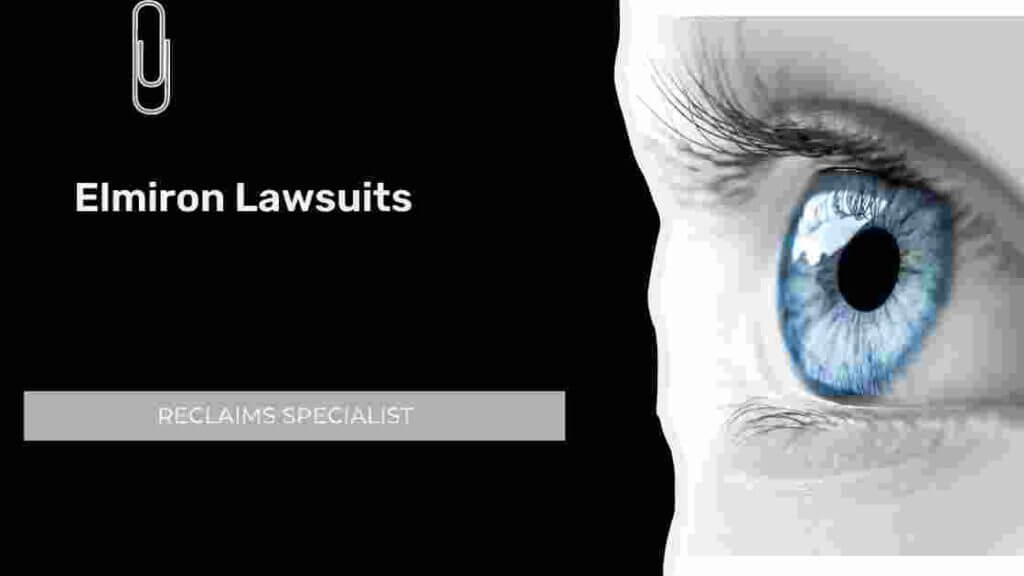In recent years, a wave of concerns has surged among individuals who have taken the prescription medication Elmiron. This medication, often prescribed for a condition known as interstitial cystitis, has been the subject of a growing number of lawsuits, collectively known as the “Elmiron Law Suit.” As people continue to grapple with the consequences of taking Elmiron, questions arise about the legal aspects of these cases. What is the Elmiron Law Suit, and what does it mean for those who have been affected? In this article, we’ll dive deep into the Elmiron Law Suit, exploring its origins, the allegations, and what you need to know if you or a loved one has been impacted.
What is Elmiron, and Why is it Prescribed?
Before delving into the Elmiron Law Suit, it’s crucial to understand what Elmiron is and why doctors prescribe it. Elmiron, whose generic name is pentosan polysulfate sodium, is a medication primarily used to treat a condition called interstitial cystitis, often referred to as painful bladder syndrome. Interstitial cystitis is a chronic bladder condition characterized by discomfort, pressure, and pain in the bladder area.
Elmiron is typically prescribed to provide relief from the symptoms of interstitial cystitis, such as:
- Frequent urination
- Urgency to urinate
- Pelvic pain
- Pain during sexual intercourse
While Elmiron has been a ray of hope for many suffering from this painful condition, a cloud of uncertainty has begun to overshadow its use due to emerging concerns about potential side effects.
The Emergence of the Elmiron Law Suit
As patients began experiencing unexpected and alarming health issues, a growing number of lawsuits were filed against the manufacturers of Elmiron. These lawsuits, collectively referred to as the Elmiron Law Suit, claim that the drug’s manufacturers failed to adequately warn patients and healthcare providers about the potential side effects associated with Elmiron use.
Allegations in the Elmiron Law Suit
The Elmiron Law Suit is founded on several allegations, including:
- Failure to Warn: Plaintiffs argue that the manufacturers of Elmiron, Janssen Pharmaceuticals (a subsidiary of Johnson & Johnson), failed to provide adequate warnings about the risks associated with the drug, including potential eye damage.
- Negligence: It is alleged that the manufacturers were negligent in not conducting sufficient testing to identify the potential side effects of Elmiron.
- Design Defect: Some lawsuits claim that Elmiron has a design defect, making it unreasonably dangerous for its intended use.
- Breach of Warranty: Plaintiffs assert that the manufacturers breached warranties by failing to ensure Elmiron was safe for use as prescribed.
- Failure to Recall: Critics of Elmiron claim that the manufacturers should have issued a recall of the drug once the potential side effects became evident.
The Alleged Side Effects of Elmiron
The core of the Elmiron Law Suit revolves around the alleged side effects associated with the medication. While Elmiron was initially believed to have a favorable safety profile, troubling reports have emerged regarding eye issues linked to its use. Some of the reported side effects include:
- Retinal Pigmentary Changes: A significant concern is the development of retinal pigmentary changes, which can lead to vision problems, including difficulty reading, adjusting to low light conditions, and even night blindness.
- Maculopathy: Some Elmiron users have experienced maculopathy, a condition that affects the macula of the eye, leading to blurred or distorted central vision.
- Vision Loss: In severe cases, prolonged use of Elmiron has been associated with vision loss, which can be life-altering and irreversible.
These alarming side effects have left many Elmiron users wondering whether their health has been compromised by a medication they believed would improve their quality of life.

Frequently Asked Questions about the Elmiron Law Suit
1. Who can participate in the Elmiron Law Suit?
Elmiron users who have experienced eye problems or vision changes potentially related to the medication may be eligible to participate in the Elmiron Law Suit. It’s essential to consult with a qualified attorney to determine if you have a valid claim.
2. What should I do if I’ve experienced eye issues while taking Elmiron?
If you’ve experienced any eye problems while taking Elmiron, the first step is to seek immediate medical attention. It’s crucial to document your symptoms and diagnosis. Additionally, consult with a legal professional experienced in pharmaceutical litigation to discuss your options.
3. Is there a deadline for filing a claim in the Elmiron Law Suit?
Yes, there is a deadline, known as the statute of limitations, for filing a claim related to Elmiron use. These deadlines vary by state, so it’s essential to consult with an attorney to understand your specific timeframe.
4. Can I still take Elmiron if I need it for my condition?
The decision to continue or discontinue Elmiron should be made in consultation with your healthcare provider. It’s crucial to discuss the potential risks and benefits of continuing the medication, taking into account your individual health needs.
5. What compensation can I expect from the Elmiron Law Suit?
The compensation available to individuals who file claims in the Elmiron Law Suit can vary depending on the specifics of their case. Compensation may include medical expenses, pain and suffering, and other damages. An attorney can provide more details based on your circumstances.
Fill in the form to get a detailed guidance to the compensation money

